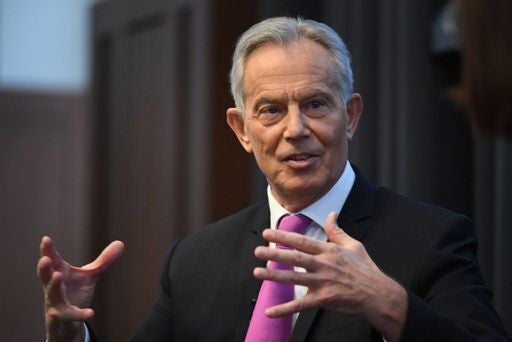What a turnaround – most Labour Party members now have a favourable view of Tony Blair
The speed with which the Labour Party has changed is breathtaking, writes John Rentoul


Your support helps us to tell the story
From reproductive rights to climate change to Big Tech, The Independent is on the ground when the story is developing. Whether it's investigating the financials of Elon Musk's pro-Trump PAC or producing our latest documentary, 'The A Word', which shines a light on the American women fighting for reproductive rights, we know how important it is to parse out the facts from the messaging.
At such a critical moment in US history, we need reporters on the ground. Your donation allows us to keep sending journalists to speak to both sides of the story.
The Independent is trusted by Americans across the entire political spectrum. And unlike many other quality news outlets, we choose not to lock Americans out of our reporting and analysis with paywalls. We believe quality journalism should be available to everyone, paid for by those who can afford it.
Your support makes all the difference.Something remarkable has happened to the Labour Party. Tony Blair is now as popular with party members as Jeremy Corbyn. Admittedly, that means neither of them is very popular, with only half of Labour members saying they have a favourable view of each of them, compared with 81 per cent with a favourable view of Gordon Brown, 78 per cent of Ed Miliband, and 74 per cent of Keir Starmer.
But the latest YouGov survey, carried out last month and published yesterday, shows a transformation in attitudes since January last year, when two-thirds of members had an unfavourable view of Blair and two-thirds a favourable view of Corbyn.
Two things are clearly happening at once. One is that the membership of the party is changing. Many of the more committed Corbyn supporters are ignoring the advice of John McDonnell, the former shadow chancellor, to stay and fight, and have quit the party in disgust at what they call the leap to the right under Starmer. Other people joined – or rejoined – the party a year ago, partly in order to vote for Starmer as leader and to take back the party from what they call the hard left.
The net result is that party membership is down from the peak of about 580,000 at the time of last year’s survey, and immediately after the 2019 election, to around half a million now, and its composition has changed.
The other thing that is happening is that people have changed their minds. Labour’s humiliating defeat in the last election didn’t just encourage people to join the party, it made them – initially – defensive of Corbyn’s reputation. From my conversations with grassroots members, they knew Corbyn was no good, but they resented the media for traducing a decent person. These were sentiments familiar to me as a young Labour activist in the 1983 election, when I winced at Michael Foot’s hopelessness, but thought the personal attacks on him were unfair.
But the 1983 election was also a moment of clarity about how Labour needed to change, and I think some of that has happened over the past 14 months too. It is quite peculiar to see Gordon Brown at the top of the league table of former leaders, but I think that reflects a new respect for those who were actually in government. The poll was carried out before the Greensill affair really got going, but recent prime ministers who are not called David Cameron have seen their stock rise. And that includes Blair, because most Labour Party members do actually want to win, as Peter Mandelson reminded students at King’s College London the other day.
Even so, there is something deeply sentimental about the Labour culture, which doesn’t seem to change however much churn there is in the membership numbers, and however much the party goes on losing elections. The popularity of Brown, Ed Miliband and Neil Kinnock – losers all – suggests a party that luxuriates in the misery of moral victories.
Of the really popular former leaders, only Clement Attlee actually won elections: 71 per cent have a favourable view of him and only 2 per cent unfavourable – but 23 per cent say they don’t know, and the rest are probably offering their impression of the myth rather than the reality of the leader who sent British troops to Korea and built the nuclear bomb without consulting the cabinet.
Yet the party is clearly in transition. The Corbyn leadership was built on a reaction against Blair – a wave that took some time to build. As Lord Mandelson also said, remember that the party members voted for David Miliband in the 2010 leadership election: it was the trade unions controlled by the “left-wing” reactionaries who swung it for his brother.
But now the balance is being restored, with 55 per cent of Labour members recording a favourable view of Corbyn, and 54 per cent a favourable view of Blair – which logically requires the existence of members who hold a favourable view of both at the same time.
In 14 months’ time, I suspect that the backwash of the anti-Blair wave will have continued to recede, and that few Labour members will remember why they ever thought it was a good idea to have Corbyn as leader – while many more will think that it might be worth learning something from a leader who won three elections.

Join our commenting forum
Join thought-provoking conversations, follow other Independent readers and see their replies
Comments